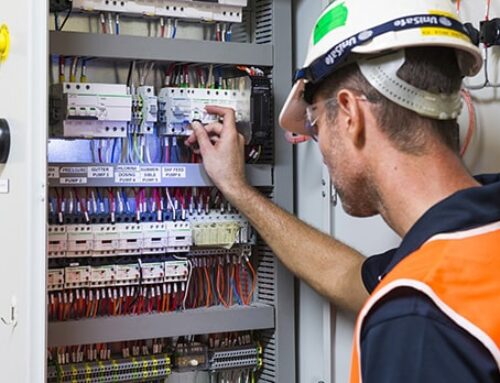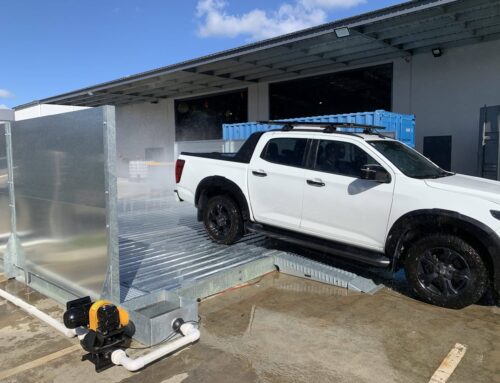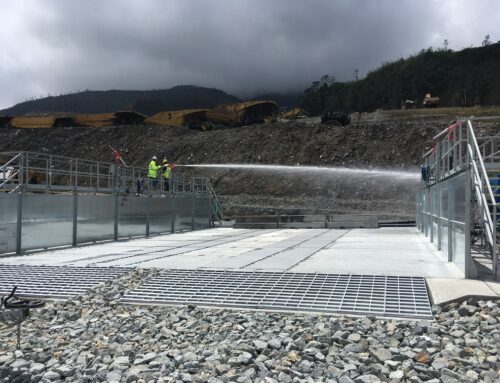What Is Recycled Water in Wash Bays — and Is It Safe?
Recycled water in wash bays is safe when treated properly through a modern water recycling system—and it’s more than just a cost-saver.
Don’t let the case of non-compliance put your operations at risk. Many industry operations managers are already shifting toward water recycling solutions not only to meet increasingly strict local authority regulations but also to reduce reliance on the main water supply. If you’re in the mining, transport, automotive, or equipment hire industry, it’s time to ask: is your current wash bay setup doing enough?
Recycled wash water or wastewater can be used across a wide range of industry applications—from mining trucks to car wash facilities—without compromising safety or performance, if you have the right wash bay system design and equipment in place.
Step-by-Step: How Wash Bay Water Is Recycled
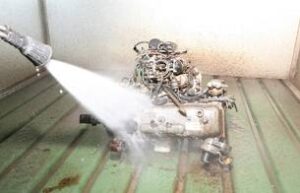
Understanding how wastewater or wash water is recycled helps uncover where safety and efficiency come in.
- Pre Treatment
This first stage filters out large debris, heavy silt, oils, and greases from wastewater. Components often include silt traps, a flush diversion system, and oil water separators. - Filtration and Treatment
The pre-treated water passes through more advanced filtration systems like oil water separators, screen filters, and a media system that removes fine particles, emulsified oils, and harmful contaminants. - Holding and Reuse
After filtration, the treated water is stored in holding tanks. From there, it’s reused for subsequent wash cycles on the wash bay floor.
Each step must function seamlessly for safe reuse. The quality of recycled wash water you get depends on this integrated process.
Is Recycled Wash Water Safe? Common Contaminants Explained
The safety of recycled wash water hinges on eliminating harmful substances commonly found in vehicle wash applications. These include:
- Oil, grease, and hydrocarbons
- Suspended solids and metals
- Detergents, soaps, and cleaning agents
- Fuel residue and brake dust
If not managed through proper pre treatment and filtration, these contaminants can compromise equipment, harm the environment, or violate discharge regulations. Many of these substances are invisible to the naked eye, yet dangerous to downstream infrastructure and potentially even to local residents if improperly handled.
This is why treatment stages involving solutions like oil separators, silt traps, and flush diversion systems are non-negotiable in modern wash bay systems.
Filtration Systems in Wash Bays: What Really Works?
Struggling with the case of suppliers who don’t understand your needs? Here’s a breakdown of which filtration systems are most effective, depending on your industry application:
| System | Ideal Use Case | Strengths | Limitations |
| Oil Water Separators | Car wash, light vehicle wash | Removes free-floating oils and grease | Doesn’t remove dissolved hydrocarbons |
| Continuous Media Systems | Heavy industrial wash bays | Handles high volumes, removes fine solids | Higher maintenance |
| Screen Filters | Construction and agricultural equipment | Captures large solids | Not suitable for oil or fine particles |
| Carbon Filters | Final polishing of water quality | Removes odour and color | Requires frequent media replacement |
You can get the best results from a multi-stage approach tailored to your specific wash bay design and operational load.
Australian Water Quality Standards and Wash Bay Compliance
Operations managers cannot afford to overlook the case of environmental compliance. In Australia, water discharged from wash bays must meet environmental and local authority trade waste acceptance criteria.
Typical requirements include:
- Suspended solids below 600 mg/L
- Oil and grease below 30 mg/L
- pH levels between 6.5 and 8.5
- No visible oils, scum, or floating debris
These benchmarks are enforced across state and local councils and often require that recycled water used in vehicle wash processes be treated with approved water recycling systems. Whether you’re managing a portable wash bay or a permanent wash bay, the case of environmental and regulatory compliance is essential—not optional.
Ignoring these standards could lead to the case of prosecution, site shutdowns, or massive fines.
Why Recycled Wash Bay Water Helps the Environment
Water recycling is not just about operational savings—it’s a meaningful way to reduce your site’s environmental impact. Here’s how:
- Reduces freshwater demand, preserving local water resources
- Limits wastewater discharge into sewer systems and natural waterways
- Minimises transport of contaminated water offsite
- Helps meet sustainability reporting requirements
For unroofed wash bay setups, especially in remote or sensitive regions, water recycling systems act as a critical safeguard against contaminant runoff—protecting not just your business, but the surrounding environment.
How Recycled Water Lowers Your Wash Bay Costs
Think custom solutions take too long? Think again. With Australian-made systems, quick turnarounds are possible—and the ROI speaks for itself.
Here are four direct ways recycled wash water saves your operation money:
- Lower Water Bills
Reduces dependency on main water supply by up to 80 percent. - Wastewater Disposal Savings
Reusing water means fewer loads to transport or treat externally. - Avoidance of Fines
Compliant systems remove the risk of environmental penalties. - Reduced Downtime
Efficient recycling systems in wash bays mean no delays when water access is interrupted.
Combined with a modular portable wash bay, these savings multiply—especially when tailored to your site’s wash frequency, equipment type, and traffic load.
Top 5 Myths About Recycled Water in Wash Bays
- Recycled water damages vehicles
False. Properly treated recycled water from wash bays is safe and commonly used in commercial wash facilities.. - Only big operations can use water recycling systems
False. Scalable and portable solutions are available for operations of all sizes. - It doesn’t meet compliance standards
False. Recycled water, when treated through approved systems, can meet or exceed discharge requirements. - Recycled water smells bad
False. Advanced filtration and carbon treatment eliminate odour issues. - The systems are too expensive
False. Our locally manufactured water treatment systems for wash bays offer cost-effective, long-term savings.
How to Choose the Right Water Recycling System for Your Wash Bay
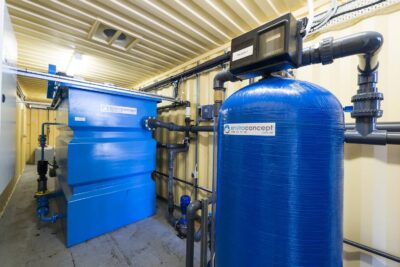
Want custom wash solutions fast? Yes, it’s possible—when you choose a system built for your operation.
Here’s what to evaluate:
- Site Layout
Is your wash bay floor suited to drainage? Do you have room for holding tanks or need compact portable wash bays? - Volume and Type of Vehicles
Light-duty fleets need simpler setups. Mining and transport equipment require more robust water treatment systems and oil water separators in their wash bay. - Regulatory Requirements
Contact the local authority and understand their discharge criteria and whether you need additional systems like pre treatment pits or flush diversion systems. - Climate and Water Access
For regions with water scarcity, an efficient recycling system is a necessity—not a luxury.
The right system doesn’t just ensure compliance—it enhances operational flow and long-term resilience.
Turning Recycled Water Into Competitive Advantage
In today’s regulatory and economic environment, the question isn’t can you trust recycled water in permanent or portable wash bays?—it’s Can you afford not to?
Water recycling systems are no longer optional extras for high-performing operations. They’re a standard of excellence. They help you stay compliant, save money, protect the environment, and operate efficiently—all while using a resource you already have: your own wash water.
You need more than a basic setup—you need a solution built for your reality. Contact us today. At EnviroConcepts, we don’t offer one-size-fits-all systems. We design every portable wash bay, every oil separator, and every holding tank based on what will work best for you—your fleet, your equipment, your site.
If you’re ready to improve your wash bay operations, reduce risk, and future-proof your water use, we’re here to help.
- Contact our team for a free consultation or get an estimate now.
- Need quick answers? Visit our frequently asked questions section or contact us at 1300 661 130 today.
Let’s build your next-generation portable wash bay—efficient, compliant, and proudly Australian-made.


